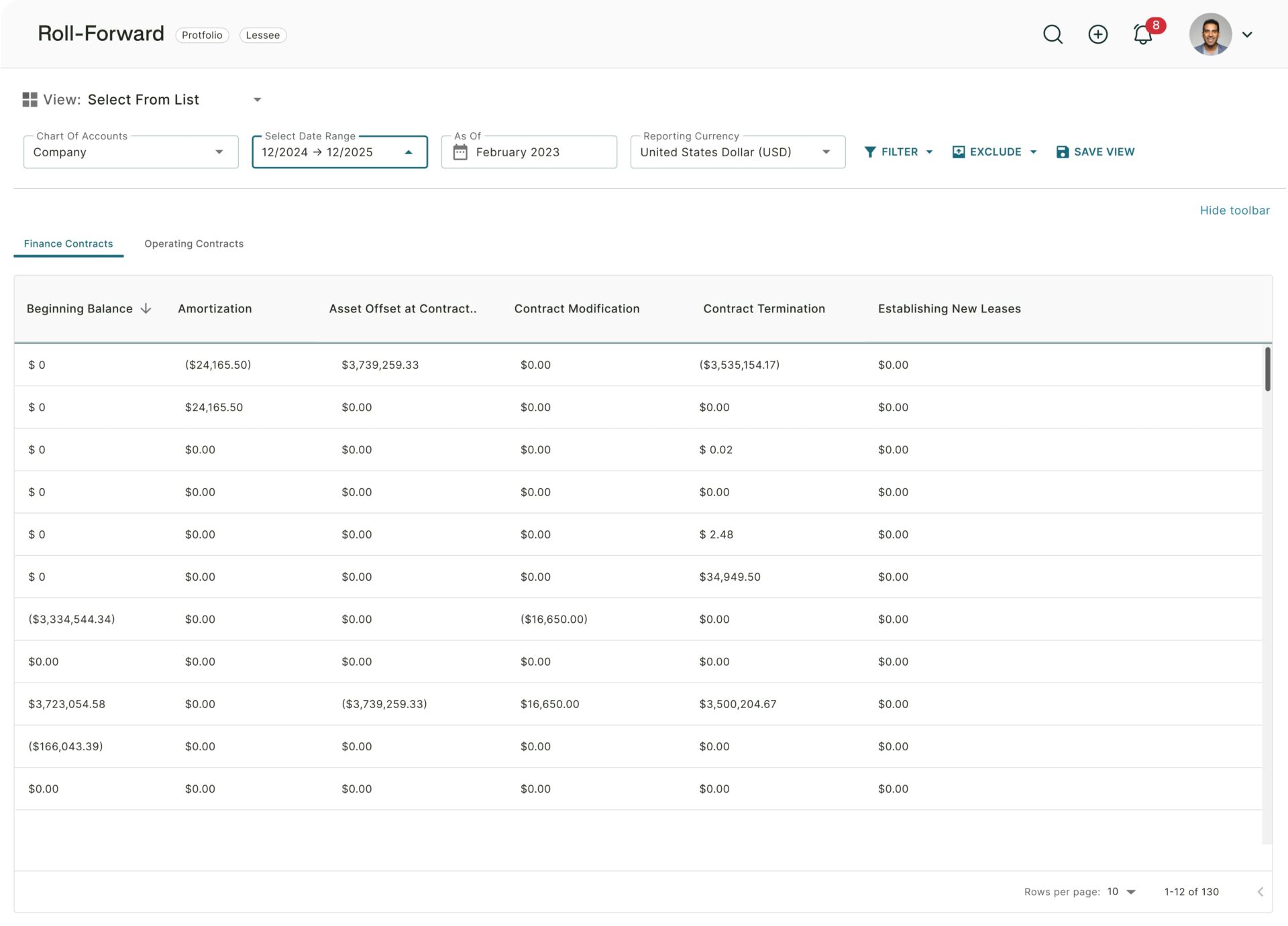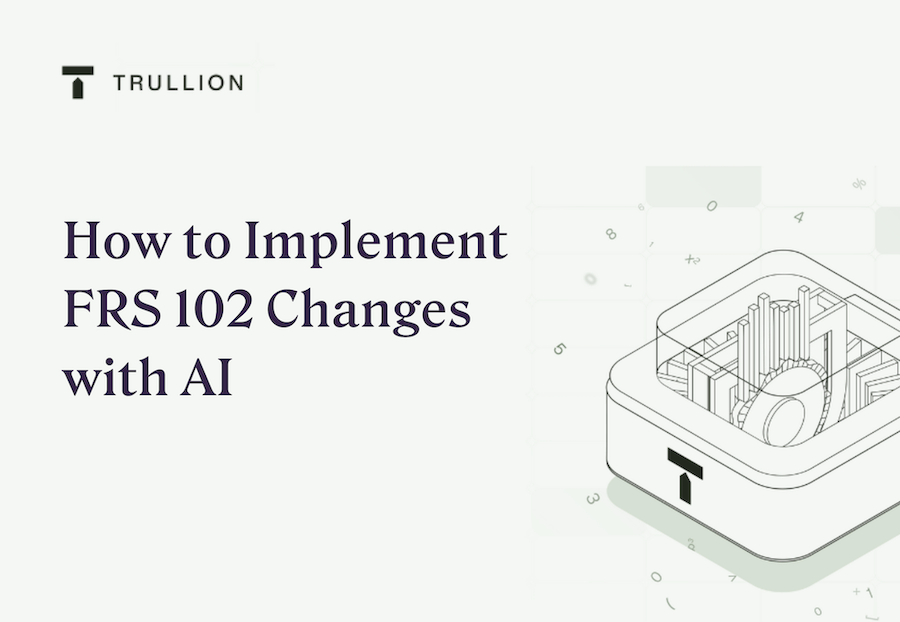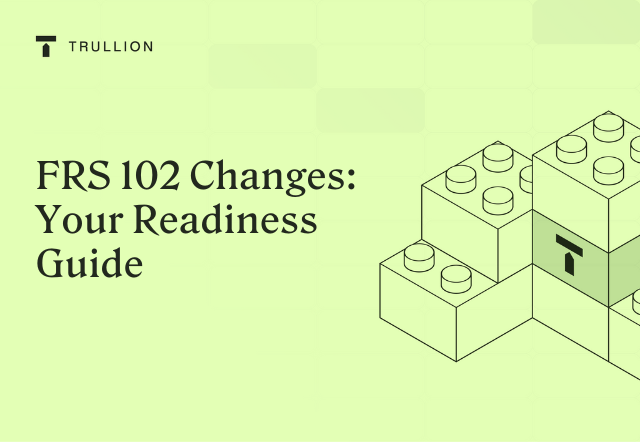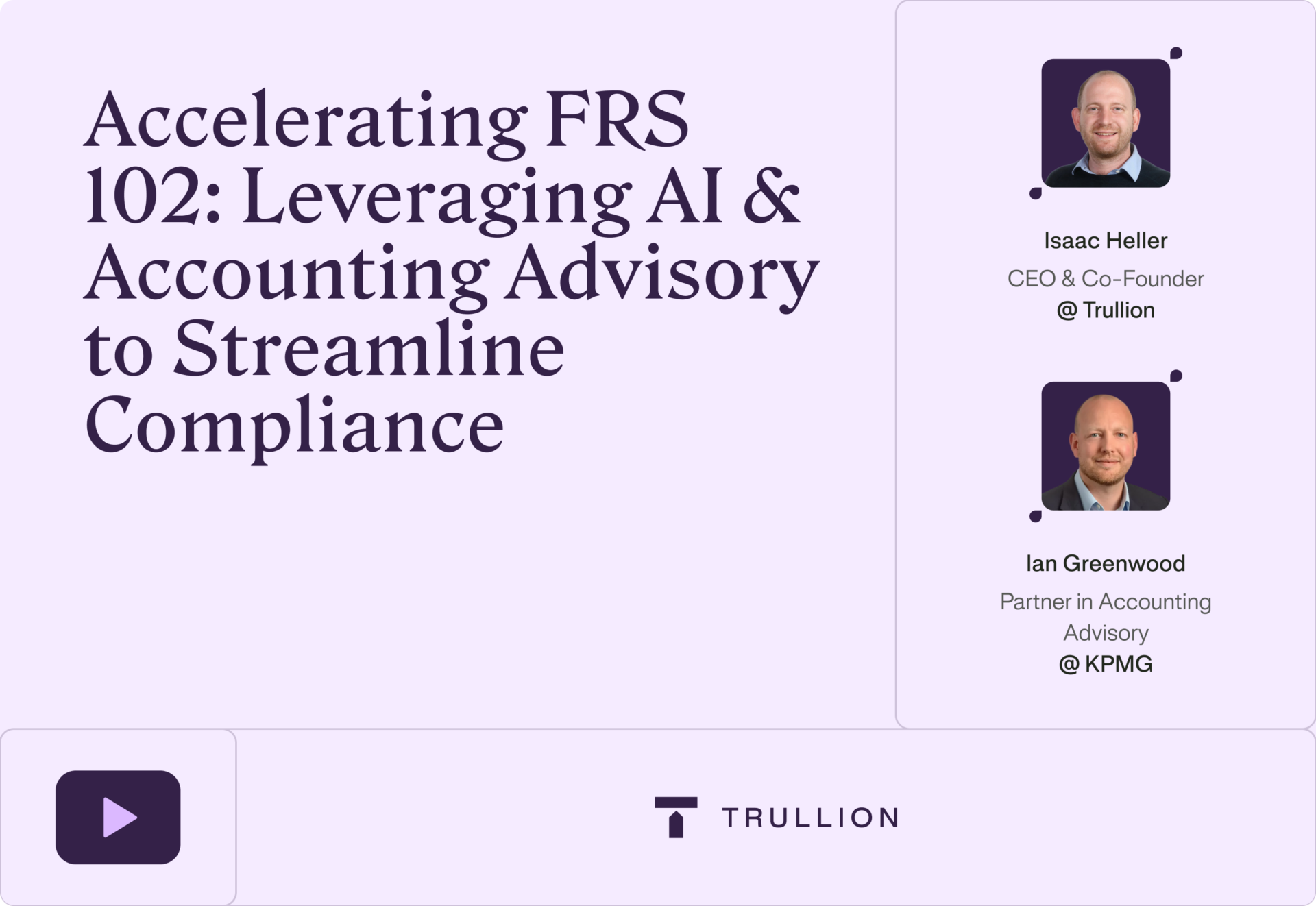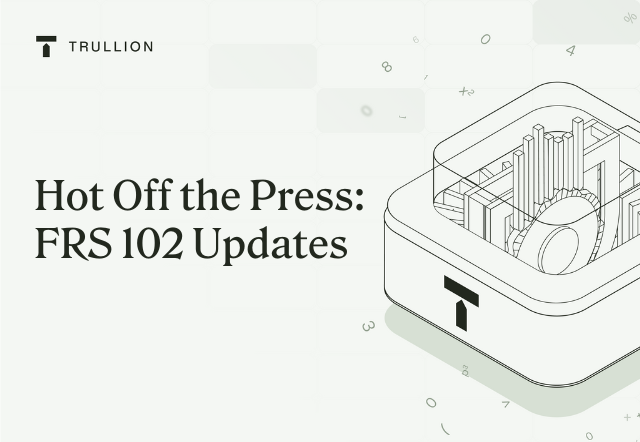For public and private businesses in the UK and the Republic of Ireland, important changes to financial reporting standards are right around the corner. Preparing for those changes now—including getting the right tech stack in place—will go a long way toward avoiding headaches when the effective date arrives.
These concerns were the topic of the recent FRS 102 Adoption Webinar presented by Trullion and KPMG. Daniel Cohen, Strategic Alliances Manager at Trullion, moderated the panel discussion between Isaac Heller, Co-founder and CEO at Trullion, and Ian Greenwood, Partner, Accounting Advisory Services at KPMG (UK). They discussed how businesses can leverage AI and accounting advisory services to make compliance with FRS 102 easier.
Understanding the FRS 102 Standards
FRS 102 is the comprehensive financial reporting standard applicable in areas governed by the FRC, and is designed to bring UK GAAP for private entities in line with international financial reporting standards. The most significant changes are:
- On-balance-sheet lease accounting for lessees, which eliminates the distinction between operating and finance leases
- A new five-step model for how companies recognize revenue from customer contracts
- Modifications to fair value measurement and business combinations
Challenges of the new standards
The transition to FRS 102 will present a number of challenges for finance and accounting teams:
- More qualitative judgments. Companies will have to analyze contracts and make careful judgments, such as determining which contracts meet the definition of a lease and which leases are exempt based on the lease term.
- Large amounts of data. Meeting the standards will require companies to extract and manage large amounts of data from all of their leasing contracts.
- Complex contract changes. Because leasing arrangements evolve over time, the assumptions that underlie leasing contracts will need to be revisited every year, which will require companies to manage complex changes across hundreds or even thousands of contracts.
- Stakeholder expectations. Under the new accounting standards, key financial metrics will change. Finance and accounting teams will need to manage the expectations of other stakeholders, who may be affected by the new numbers.
How AI Aids Compliance With FRS 102
Heller and Greenwood noted that many companies try to manage compliance with Excel. While that may work in the short term, it is not a long-term solution. “Excel can work with a small portfolio, but eventually it will break, especially after the first year,” Heller said. “Leasing changes can become very complicated and prone to human error.”
Heller recommended that companies with more than 10 leases or assets should at least evaluate an automated, AI-powered accounting tool. AI can aid compliance in a number of ways:
- Automated data extraction. Optical character recognition (OCR)-based data extraction tools that can read leases quickly and simplify contract review.
- Streamlined lease modification. AI helps manage complex contract changes at scale while lowering the number of errors.
- Real-time disclosure reports. AI enables finance and accounting teams to provide documentation faster for stakeholders and auditors.
In light of his extensive experience managing adoption with Trullion’s clients, Heller is confident that companies will be able to make the transition: “The nice thing is that there is a lot of precedent for implementing these new compliance standards and navigating the interplay of the processes and change management—with help from technology and automation.”
You can learn more about FRS 102 here. And we encourage you to listen to the full webinar here.


